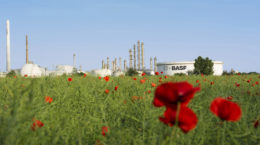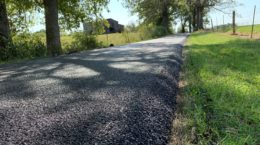B2Last is an innovative liquid asphalt modifier developed by BASF. Unlike other modification systems which are blended and can separate, B2Last reacts with the liquid asphalt at a molecular level to improve the functional characteristics of the asphalt base.





